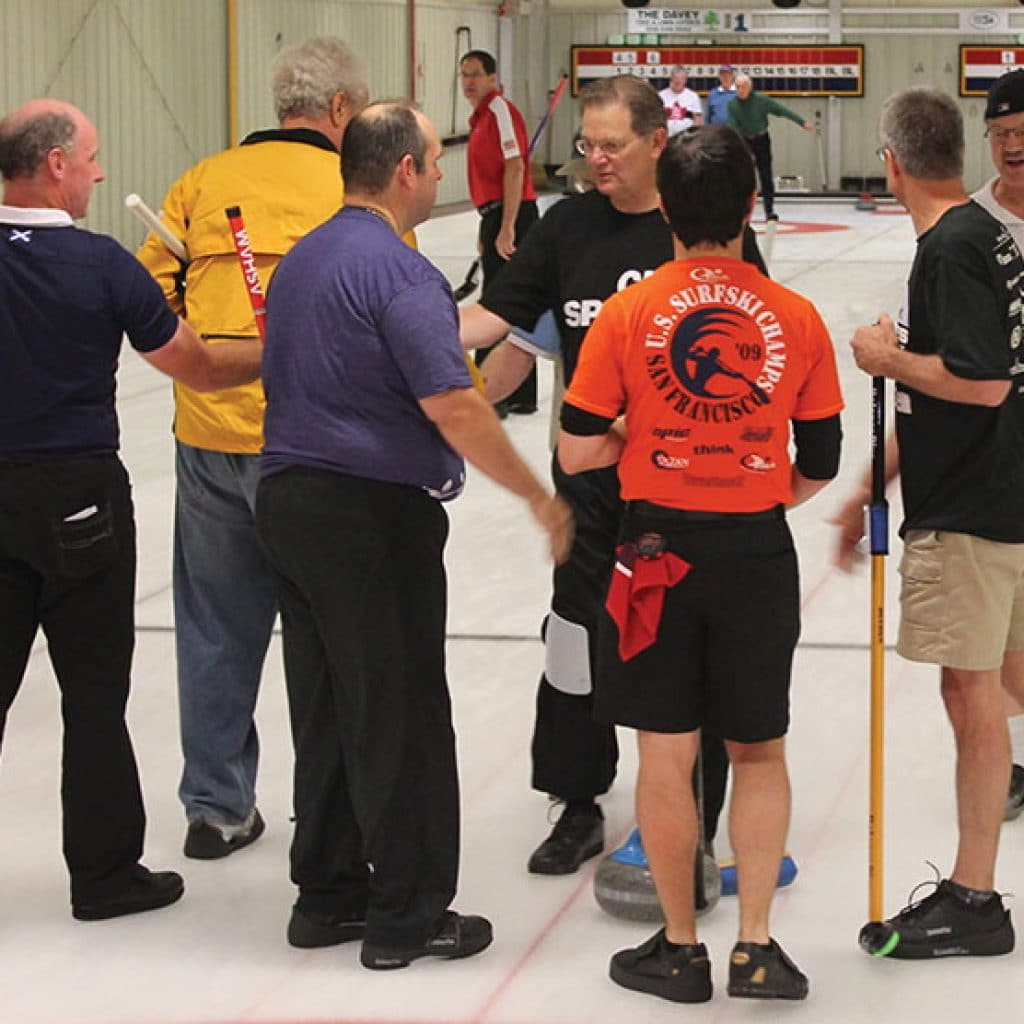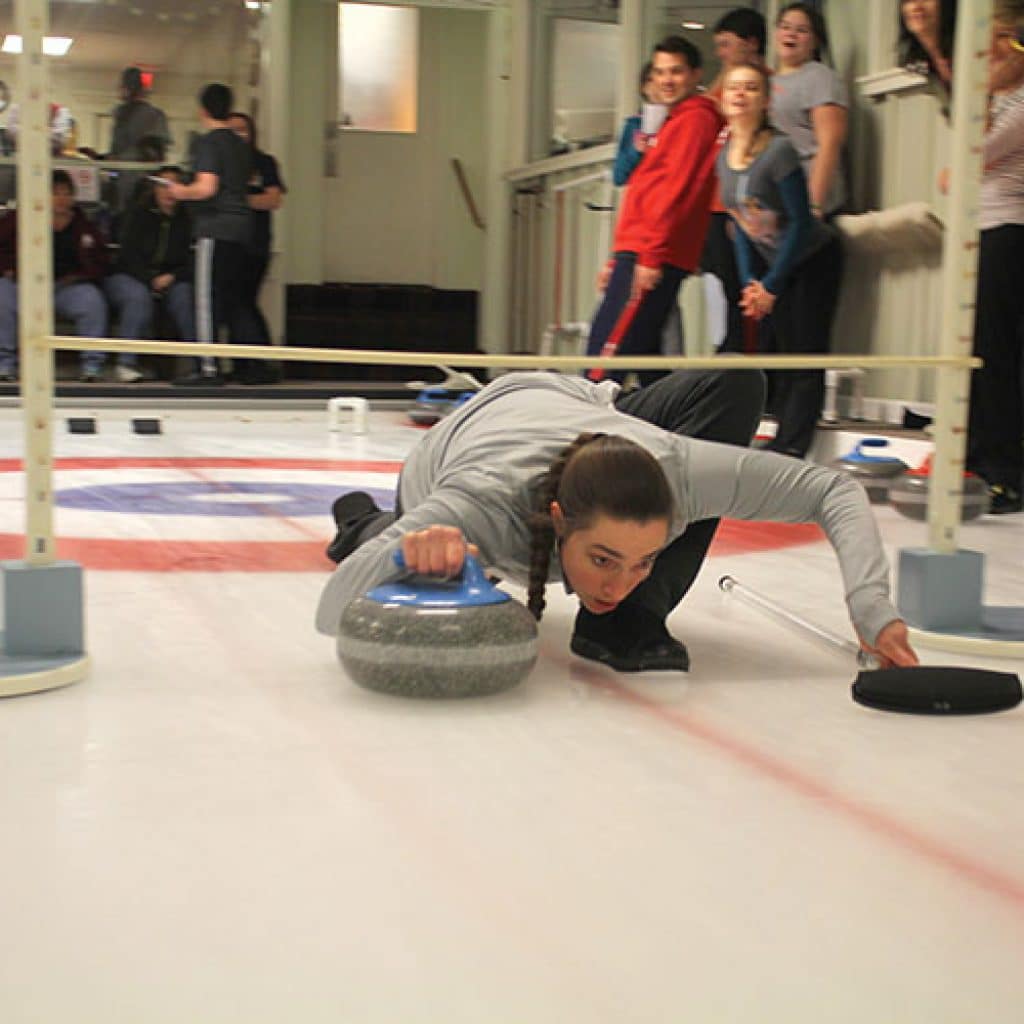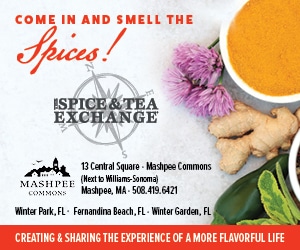
Stone Cold Competitors
Cape Cod Life / November/December 2019 / Art & Entertainment, People & Businesses, Recreation & Activities
Writer: Matt Tormey
Stone Cold Competitors

Cape Cod Life / November/December 2019 / Art & Entertainment, People & Businesses, Recreation & Activities
Writer: Matt Tormey
Rock in the House
A handshake is a common occurrence at Falmouth’s Cape Cod Curling Club (CCCC), marking the beginning and end of every match. Rarely in other sports does such a cordial expression happen among the entire team before the start of every game and at its conclusion. The winter sport of curling has exploded in popularity in recent years, enjoyed and participated in by both men and women. Since being added to the official Olympic lineup in 1998, the game has boasted a number of players and fans from across the world. The Cape Cod Curling Club is the region’s premier connection to the sport and is dedicated to curling education as well as the game’s development.

2019 marks the club’s 50th anniversary and it has certainly come a long way since its humble origins, founded by a curious Dr. Dave Dewees, a Falmouth resident, and several interested companions in 1969. With many of the members having no background in curling, the Cape Cod club was often outmatched by its more established competition. But regardless of what the scoreboard may have read, Dewees and his quickly growing crew encountered camaraderie and encouragement from every corner of the curling world.
CCCC soon joined the largest regional curling association, the Grand National Curling Club of America, (under the national governing body of the United States Curling Association) and has the notable distinction of being the first member club to send female representatives to the national meeting. A dedicated curling space was constructed in Falmouth in 1975, which came under the club’s ownership in 1979. The CCCC facility and some members also have the honor of being involved with the official U.S. Curling Association orientation and training video.
Understanding the curious sport is easy once you explore some basic principles. Curling consists of two teams of four players on a narrow ‘pitch’ of ice 150 feet in length. Teams and players alternate ‘curling,’ a form of sliding, 45-pound, specially carved, granite stones with handles, down the ice to a ‘house’, a 12-foot circular target comprised of a blue, white and red layers. Points are awarded based on the closest distance to the house’s center, the innermost circle. While one team member curls the rock down the ice, their teammates can help guide its path by sweeping in front of the rock with a broom. The broom’s sweeping motion affects the trajectory of the rock on the ice. Each of the team’s four players throw two rocks every “end,” similar to an inning in baseball. The number of ends in a game varies by level, often eight or ten.
Exploring The Club
Although generally regarded as a winter activity, CCCC hosts a major summer event, the July Bonspiels. The bonspiels, or curling tournaments, have events for men, women, men and women combined, junior and wheelchair curlers. The club’s July bonspiels are the oldest and largest off-season curling event in the world. This summer event attracts national and international athletes who come to stay for a week on the Cape. Another large, popular annual event hosted by the club is Thanksgiving morning’s Great Gobble Spiel. In addition, at several points in its history, the club has held large, nationally-sponsored curling events attracting top talent. Those interested in witnessing curling, but unable to make it to Falmouth, can watch the club’s major events online via livestream available on the club’s website.
The club has always put education first and prides itself on offering open houses and classes that are a resource to anyone interested in the sport. This emphasis on education and learning derives from the club’s earliest days when it was the larger curling community that helped the members of the fledgling Cape Cod club learn the basic skills they needed to play the game. As a result, CCCC has always put helping others at the forefront of its mission. A five-session introductory program teaches prospective curlers both the physical gameplay of the sport along with its history, tradition and etiquette. CCCC President Mike Minior states that “education is one of the club’s founding principles.” At a cost to the club (equipment, time and student transportation), a curling curriculum has been implemented into local schools’ fourth-grade physical education programs including neighboring Falmouth Academy. Club members have volunteered to go to schools and facilities in addition to teaching students on the club’s own ice. This emphasis on education has allowed the club to operate as a not-for-profit charitable organization since 1970.
The club has curling opportunities for all ages and abilities. In addition to the official 45-pound rock, there are two lower, lighter levels of rocks available for younger or newer curlers. For curlers with physical limitations, delivery stick and wheelchair curling options are available and provide competitive gameplay due to the club’s substantial membership in both categories. In fact, the club goes out of its way to work with and train curlers of differing physical abilities. The club’s publicity officer, Jeanie Yaroch, praises the sport’s adaptability to incorporate and accommodate a wide range of players, spanning ages and abilities, making CCCC proud to be home to a diverse community of athletes.

Some club members have competed on the world stage. Three CCCC curlers, Mashpee’s David Palmer, East Falmouth’s Meghan Lino, and Steve Emt, who travels from Connecticut to curl with the CCCC wheelchair program, have represented team USA at both the Wheelchair Curling World Championships and the Paralympic Games. This year two more CCCC curlers are poised to join the elite squad. Although no medal has been won to date, Cape Cod continues to develop more world class wheelchair curling talent than any other U.S. club.
As involved community members, many of the club’s curlers participate in local charity fundraising events. This includes the Falmouth Christmas Parade, a Thanksgiving food drive as well as a number of contributions to other charitable organizations. The club also helps its own, offering a college scholarship awarded to junior members pursuing higher education.
The Curlers
Russ Lemcke, known as “Mr. Curling,” believes the atmosphere of respect to players at all levels is the key piece to curling’s charm. Lemcke describes curling as “a unique and healthy sport with a perfect blend of social activity and competitiveness.” Lemcke expands, “In curling, your competitor is your friend.” Lemcke believes this attitude attracts like-minded competitors who put friendliness and respect at the forefront of their game. Even in a sport known for its amiable nature, by all accounts CCCC and its members stand out among others as the friendliest and most hospitable.
In 2018 Lemcke had the honor of being inducted into the United States Curling Association Hall of Fame. Lemcke has played in a variety of international destinations, from Canada to several European nations. With these worldwide experiences under his belt, he states confidently, “Curling is the best team sport. There is universal respect among the game’s players, exemplified through encouragement, lack of trash talk and, at the end of the game, a trip out for refreshments where the winner buys the loser drinks.”
Lemcke is also known as the “Johnny Appleseed of curling” for his work in establishing numerous curling clubs. The recently opened Lower Cape Curling Club in Orleans as well as a club on Nantucket are Lemcke’s work. Lemcke’s commitment to the sport comes from his honest belief that, “If curling was mankind’s natural sport, there would be no war.”
Stripped down to its very core, Michael Minior believes that curling is “something to do in the winter.” Unquestionably, the experience of curling here on Cape Cod is so much more than just that. Minior explains curling is in a class of its own when it comes to “camaraderie and social interaction. Every game presents new opportunities, new friends, and away games offer new places.” Minior states that he is excited to see “the curling community on both Cape Cod and the Islands is still expanding.”
Jeanie Yaroch recounts that curling has become a huge part of her life. Curling is a rewarding and fulfilling social endeavor and Yaroch is on an endless quest to improve. Yaroch is especially drawn to what is known as the Spirit of Curling, which the World Curling Federation describes like this: “Curling is a game of skill and of traditions…Curlers play to win but never to humble their opponents. A true curler would prefer to lose rather than win unfairly…The spirit of the game demands good sportsmanship, kindly feeling and honorable conduct. This spirit should influence both the interpretation and application of the rules of the game and also the conduct of all participants on and off the ice.”
The CCCC is among the Cape’s best off-season recreational options. The club is able to offer some of the most affordable dues in the nation, thanks in part to its large membership, numerous fundraisers, all-volunteer staff and acute financial management. As a club dedicated to friendship and fun for all, it is undoubtedly succeeding in its mission.
Curling, while not always the obvious choice for sportsmen, has found a highly dedicated player base on Cape Cod. The passion its members hold for the sport is visibly apparent at every turn. The club is poised to be a welcome fixture on Cape Cod for years to come.
Matt Tormey is an editorial intern at Cape Cod Life Publications



